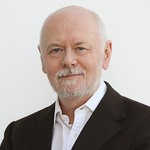Blog
From the Editor's Desk (August 2012)
Tony Addison
With this issue, Angle returns refreshed from its Nordic summer break. The sun continues to shine on the Baltic, although it is getting noticeably chillier as we now head into the autumn. To keep our spirits up we have a very active programme of events for the rest of the year. This Angle brings you news of some of them, as well as reports on recent ones.
We begin with a report-back from an important event UNU-WIDER held with the World Bank in June to launch a special issue of the Journal of Economic Inequality edited by Luc Christiaensen and Tony Shorrocks. The topic was on how to incorporate time into the measurement of well-being and poverty (‘poverty dynamics’). Some people remain in poverty all their lives (the ‘chronically poor’), while some people experience spells in poverty, but are non-poor for part of their life. Poverty is especially bad in the early years of life, as it is often associated with malnutrition that affects physical development and educational participation and learning. Poverty measurements are usually ‘snapshots’ at one point in time. But how to bring time into the measurement of poverty is a tricky conceptual and empirical issue. UNU-WIDER has undertaken a great deal of research on poverty and human development over the years; this new special issue is an excellent and timely addition.
Our programme of work on Research and Communication on Foreign Aid–ReCom continues apace. One of the five themes is aid and gender (go here for the others). In this issue of Angle, Malokele Nanivazo and Lucy Scott discuss the first workshop held in July on the aid and gender issue. Aid donors show varying amounts of commitment to the gender dimension of their work, with some being very progressive, while others—including some of the biggest—seem to be surprisingly tardy. How to scale up good gender interventions is one key issue for the ReCom aid and gender theme, another is how to transfer the lessons of experience across countries—and especially into Africa.
Over the last three years UNU-WIDER has stepped up its engagement with climate change as a key development issue; particularly looking at the trade-offs and complementarities between goals, but also investigating in-depth the issues for selected countries. One example is UNU-WIDER’s work in Vietnam in partnership with the Central Institute of Economic Management of Vietnam and the University of Copenhagen. A workshop to launch a joint study 'Implications of Climate Change for Economic Growth and Development in Vietnam' was organized in Hanoi in July. There is also a Review of Development Economics special issue on climate change and development, just out. Our climate change and development conference takes place in September as well (applications to attend are now closed). We’ll be discussing the event in the September Angle.
The global arms trade gets too little attention, despite the amount of the world’s resources lavished on it. This month’s GuestAngle features Alisa DiCaprio, formerly of UNU-WIDER, on the implications of a global Arms Trade Treaty (ATT). As is too often the case, negotiations appear to have stalled, at least for the moment. But this provides time for reflection on the underlying issues. Negotiators should read Alisa’s piece before they return to the debating chamber—hopefully not before too long.
UNU-WIDER’s working papers continue to be a popular download. Recent topics include: early childhood development in China; the clean development mechanism; aid effectiveness in health care; financial liberalization and access to finance; reasons for failure in state capability; and the inclusiveness of India’s growth (to name just a few; go here for the latest).
ResearchAngle provides you with further one-page summaries of our working papers produced under ReCom. This month we feature aid and democratic consolidation in Africa; how to get democracy to ‘stick’ after the introduction of multi-party elections. Also take a look at Nicolas van de Walle’s UNU-WIDER working paper ‘Foreign Aid in Dangerous Places: The donors and Mali’s democracy’. Mali has hit the headlines recently, and for all the wrong reasons. Also in ResearchAngle is a piece on work by Patrick Guillaumont and Laurent Wagner for ReCom on what the evidence says about how aid can help achieve faster growth (a big concern for many aid donors). Their results indicate that aid, wisely used, can have a catalytic effect for growth, and is especially important for countries that are affected by shocks such as terms of trade deteriorations (a key issue for less developed countries).
This month’s VideoAngle with Scott Hubli, director of governance programmes at the National Democratic Institute (NDI) was conducted during the Stockholm ReCom meeting on Democracy & Fragility. Hubli talks about why democracy is an important component of the development mix, what works and could work in aid to parliamentary strengthening, as well as what is transferable and scalable in this field.
Finally, a taster for two public events coming up fast. First, on 27th September we have Lant Pritchett of Harvard University giving the WIDER annual lecture ‘The Folk and the Formula: Pathways to Capable States’, here in Helsinki. Second, with jobs on everyone’s mind, the issue of aid and employment will be discussed on 8th October at a ReCom results meeting in Copenhagen. Check our website for further news on these in the coming month.
Plenty for us all to think about—and act upon—as the global economy continues on its unsteady path into the final quarter of the year. Angle returns in September.
Tony Addison is Chief Economist-Deputy Director, and Editor of WIDERAngle newsletter.
WIDERAngle newsletter
August 2012
ISSN 1238-9544
 Join the network
Join the network

